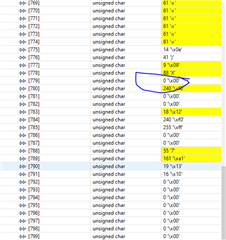Hello All,
I want to send 792 byte data from my gateway to the server using ethernet. I take all 792 data to the inside gateway.tcp_message which size is 1024. Before sending this datas to server, I put all data inside data buffer, to do that I use memcpy function. and then sending to server. But When I check the server, only first 5 byte data is coming every time. other 787 data are missing. What may be the reason of that. What do you adcive to solve this problem?
Gateway.tcp_message_length=1024;
u8_t data[1024];
memcpy(data,Gateway.tcp_message,Gateway.tcp_message_length);
thank you
BR,
Bekir


